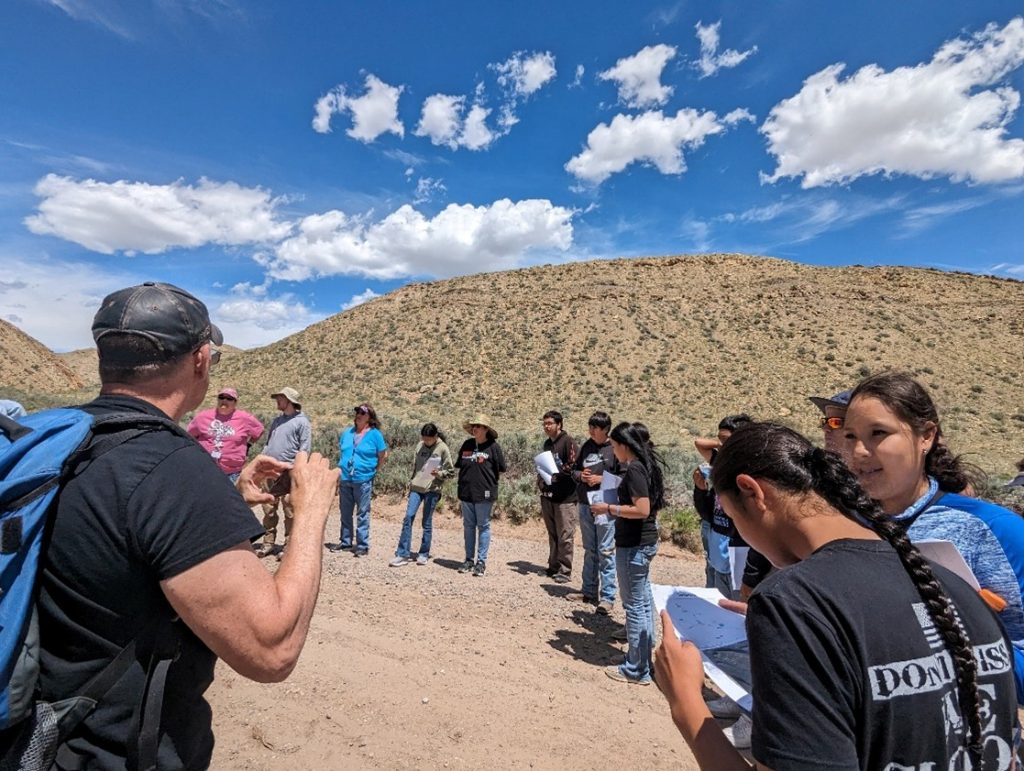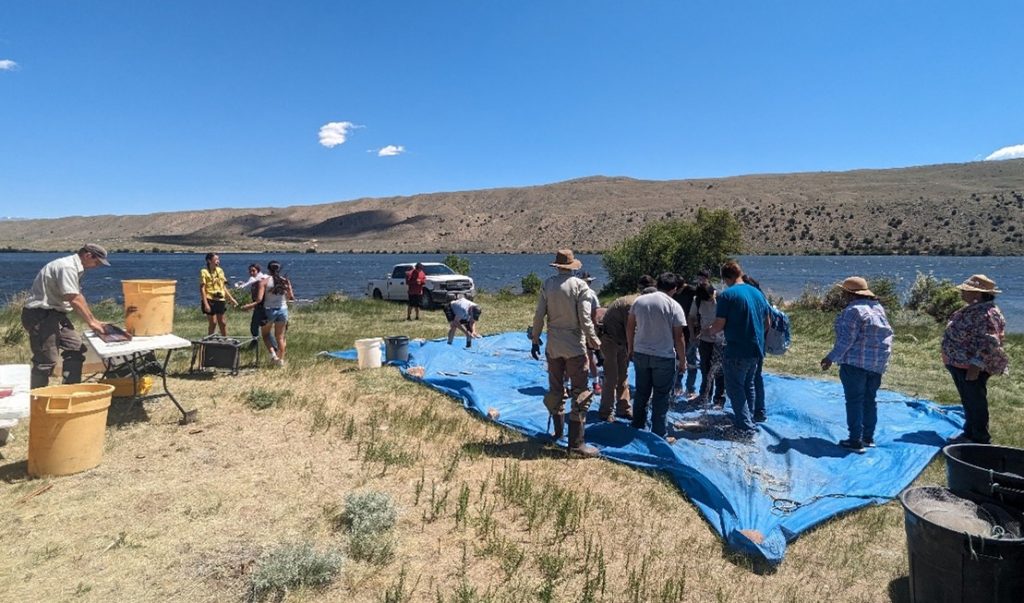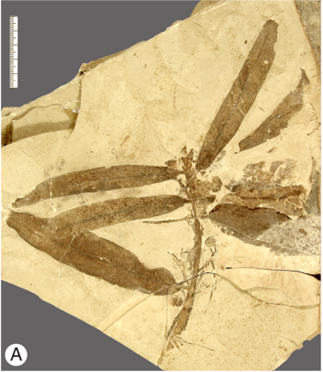
The funds for the Summer of 2024 were requested for both travel to present at the North American Paleontological Convention (NAPC) current research carried out at FLMNH and to continue outreach at the Wind River Indian Reservation.
At NAPC, I presented a fossil plant, “A Woody Angiosperm from the Green River Formation in Eastern and Western Colorado.” using a unique approach. The fossil is a unique plant that has many characters, but doesn’t fit properly within a modern family. It suggests that looking at fossil plants requires a broader look at how we identify fossil plants.
To create a unique approach to present, I decided to use a detective story and transplant it into the often used analog of the techniques used by paleontologists to study fossils. Presenting information in odd ways may seem like an inappropriate approach to science, but it helps break up the monotony that often develops in science conferences and opens avenues for amateur scientists to participate within the community.
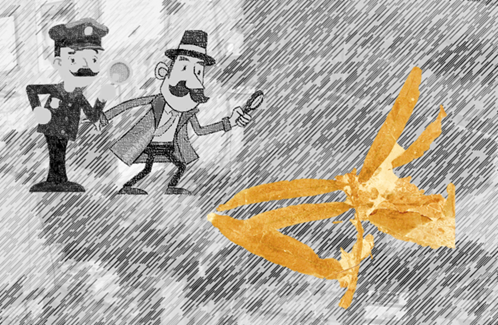
At the Wind River Reservation, we were able to contact the Northern Arapaho Tribal Historical Preservation Offices (THPO) and with Wyoming Indian High School (WIHS). Working with Crystal C’ Bearing THPO deputy director and with Mike Duffy, the science teacher at WIHS. Together, we worked with regional entities to develop a diversity of opportunities the students could participate in that would allow them to experience a variety of STEAM field activities. The trip included visiting a new locality related to the Tipperary Flora fossil site (unpublished site), visiting Circle Ridge Oil Fields, visiting Sinks Canyon State Park, States Park managed lakes, and several other places.
The students were able to learn about each of the different fields visited from experts therein; the students were accompanied by teachers, parents and Native American Elders. This helped encourage communication and forming bonds; this was our main means to create a Community of Practice. The activities at each of the visits helped students learn about the fields but also participate in activities that let them experience the field as the experts do (fossil excavation, fish counts, etc.); this helped create a Situated Learning experience.
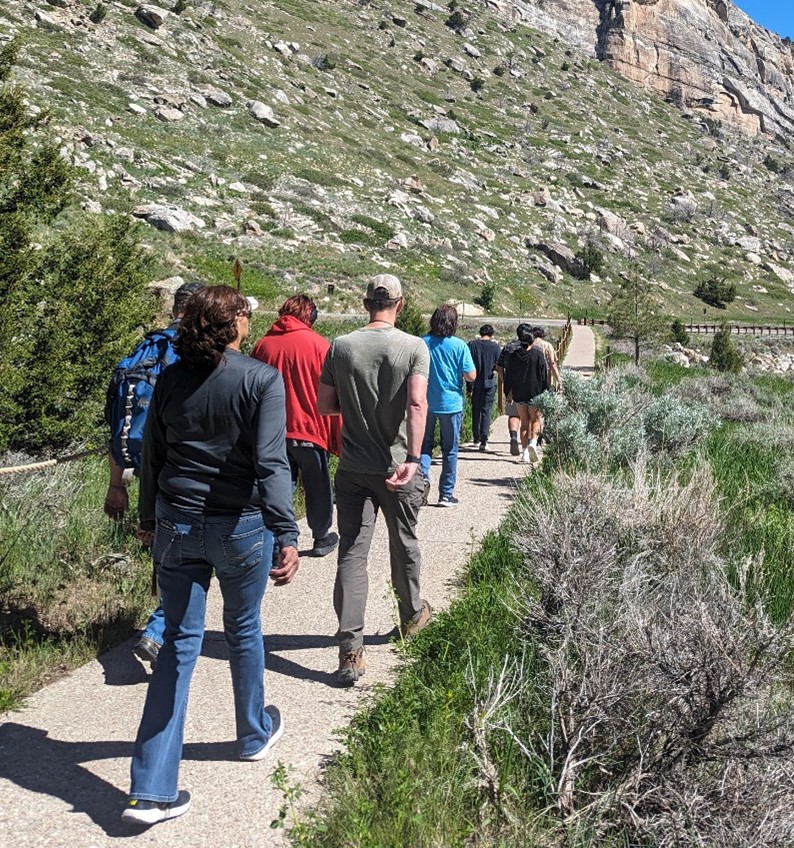
The school program transitioned into a self-sufficient system that that does not require my input to continue. I will try to participate with them but hope that this type of work inspires others to find ways to work with underrepresented groups in similar ways.
We were able to carry out both of these trips, traveling from one to the other. I used the funding for travel to the locations, for food and for lodging. Thank you for your support.
Julian Correa Narvaez is a graduate student pursuing a Ph.D. through the College of Liberal Arts and Sciences, Department of Biology, advised by Dr. Steven Manchester, Curator of Paleobotany here at the Florida Museum.
The 2024 Summer Student Travel Awards are supported by the FLMNH Department of Natural History, including funds from the Louis C. and Jane Gapenski Endowed Fellowship and the B.J. and Eve Wilder Endowment. If you would like to help support this fund for future student awards, please go to:
Louis C. and Jane Gapenski Endowed Fellowship
B.J. and Eve Wilder Endowment
